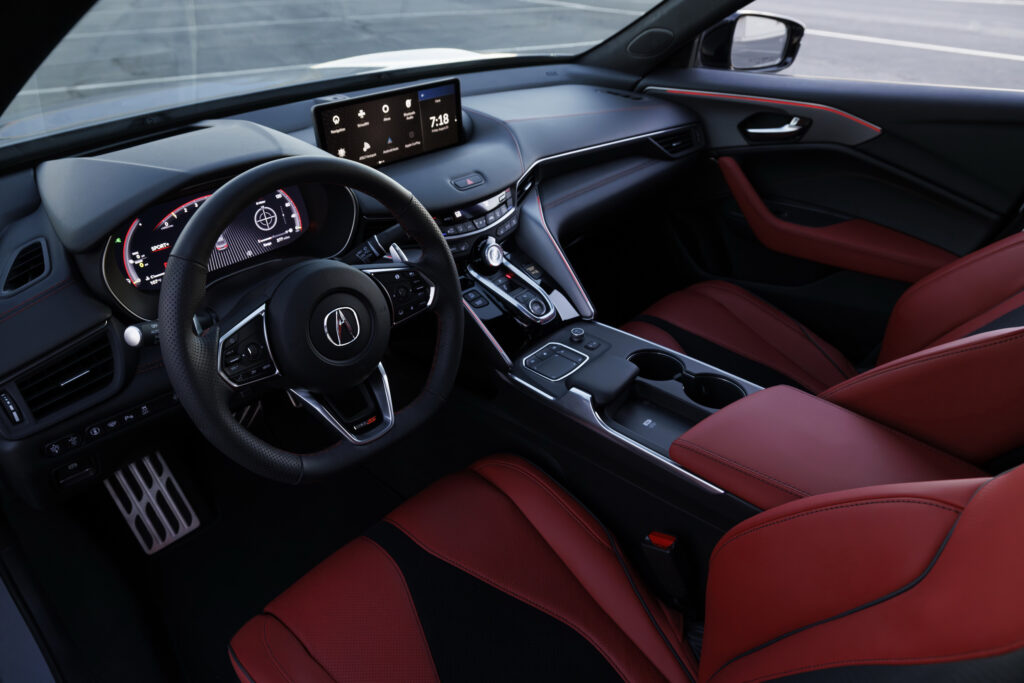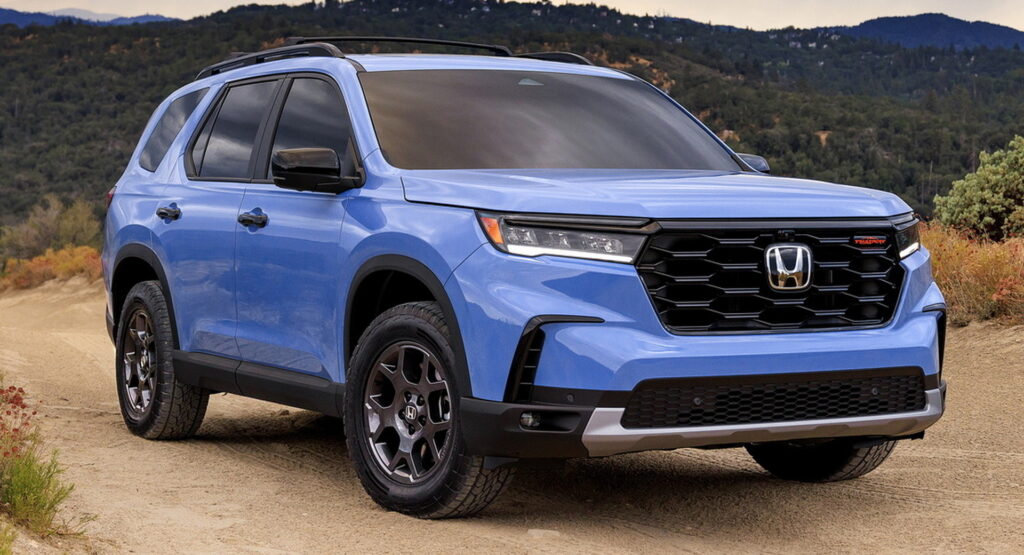
- Honda Is Recalling 259,000 cars because pressing the brake is like playing whack-a-mole.
- The brake pedal on some 2021-20025 Honda and Acura models could shift out of position.
- Only Honda Pilot and Acura MDX and TLXs produced with American-made parts are affected.
The ability to stop a car is pretty useful if you want to avoid hospital or jail. You want to know that the brake pedal is where you left and that treading on it is going to haul you up like you asked. But that’s not the case with a some modern Hondas and Acuras, and is the reason American Honda is recalling almost 260,000 of them.
var adpushup = window.adpushup = window.adpushup || {que:[]};
adpushup.que.push(function() {
if (adpushup.config.platform !== “DESKTOP”){
adpushup.triggerAd(“0f7e3106-c4d6-4db4-8135-c508879a76f8”);
} else {
adpushup.triggerAd(“82503191-e1d1-435a-874f-9c78a2a54a2f”);
}
});
Related: 295,000 Honda And Acura Vehicles Recalled Over Stalling Engines
A total of 259,033 Acura MDXs and Honda Pilots built for 2023-25, and Acura TLXs from 2021-25 are caught up in the recall related to a problem with their brake pedals. The automaker discovered that some vehicles’ pedals were produced without a stake holding the pivot pin in place, allowing the pedal to shift out of position.
What’s at Risk?
The NHTSA report says that lateral movement of the pedal could lead to unintended application, or more worryingly, make it more difficult for the driver to activate the brakes when they really need them. But in Honda’s defense, it has only received two warranty claims and no reports of injuries resulting from the fault.
So why did we suggest President Trump will be annoyed at the news of this recall, when similar safety campaigns are announced every year? It’s all to do with where the defective parts were manufactured, and as you’ve probably guessed, it was the US, though there’s an added twist to the tale.
A Lack of Training and Safety Checks

The affected TLX, MDX and Pilot were all built in America, and the brake pedals for those vehicles also came from the US. But the supplier has since shifted production to Mexico, and in the run up to the transfer, it took on a load of additional workers to help build up a big stockpile of parts that would see it through any downtime.
Unfortunately those new workers didn’t get sufficient training and failed to stake the pivot pins to prevent them falling out. The supplier also disabled a safety checking system after it malfunctioned, allowing the problem to go undetected.
var adpushup = window.adpushup = window.adpushup || {que:[]};
adpushup.que.push(function() {
if (adpushup.config.platform !== “DESKTOP”){
adpushup.triggerAd(“bb7964e9-07de-4b06-a83e-ead35079d53c”);
} else {
adpushup.triggerAd(“9b1169d9-7a89-4971-a77f-1397f7588751”);
}
});
A camera sensor is now used to check builds in the Mexico plant and there’s never been any problems with the parts produced there, meaning the Mexican parts have proved safer than the US ones.
var adpushup = window.adpushup = window.adpushup || {que:[]};
adpushup.que.push(function() {
if (adpushup.config.platform !== “DESKTOP”){
adpushup.triggerAd(“bb7964e9-07de-4b06-a83e-ead35079d53c”);
} else {
adpushup.triggerAd(“9b1169d9-7a89-4971-a77f-1397f7588751”);
}
});


